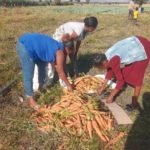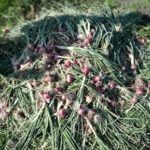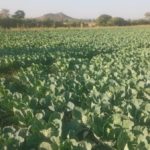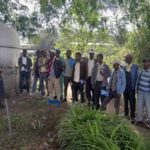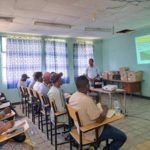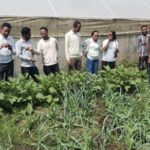We said we would Go Organic and we did!
Dear readers,
The Go Organic project closed in June 2024 and the last months of the project have been filled with more training for local farmers, exchange visits, sales of organic vegetables, more raising awareness for organic produce and more students to train!
The context remains challenging at different levels: the Tigray war is over but there are conflicts in other regions and security issues, but also high inflation and lately a huge depreciation of the Birr which is disrupting small businesses who are struggling to survive. The country is also undergoing major construction work in many cities, including Addis Ababa and Bishoftu.
We are sharing with you the highlights of our activities over the past six months, and we hope you enjoy reading the updates.
Happy reading,
The GFF team
Welcoming new students at BPC
In January 2024, Bishfotu Polytechnic College (BPC) were delighted to welcome a new cohort of 18 students: 13 women and 5 men who joined the level one in crop sciences. There had not been new student recruits over the past two years due to an educational reform that now requires students to continue their studies until the 12th grade (instead of the initial 10th grade) wishing to join a vocational high school or further studies. The college focused on evening classes and short-term training sessions during the transition period.
GFF organised a 3-day internship for the new students in June. They travelled to Holeta, accompanied by their two teachers and GFF project manager and farm coordinator. While they already have access to a demonstration site at BPC where they practice, visiting farmers at Holeta was a good opportunity for them to meet with farmers who are following organic horticulture principles in their day-to-day production. They learnt how to carry out basic nursery work, identify and determine basic properties of soil, prepare compost, identify major crop pests and apply organic pesticides. They met five model farmers and were able to ask them questions and learn from their experience.


Model farmer Ms Wezero Warker told the students that she rotates the production of carrots, green beans and kale in her greenhouse, while beetroots grow best in open fields. Holeta is located at 2391m high, where the weather conditions are more difficult than Bishoftu, and 1920m high, where the weather conditions are gentle. It was interesting for the students to learn about the differences between the two locations, and see how farmers adapt and can learn from each other.

Zinash’s classmate, Beshadu, liked the water bottles used for seedlings. “It’s helpful when you don’t have much space”.
Hub members’ activities
The hub members at Denkaka remained active over the past months of the project. The group of young men harvested garlic, planted onions and head cabbages while the young women were busy planting and harvesting carrots, beetroots and beans.
GFF continued supporting them with technical advice, weekly English classes and weekly planning discussions.
Visits from the local authorities
Our project is subject to the monitoring and evaluation of the local authorities, who visited the project sites in January and later in July for a final evaluation.
At the time of issuing this newsletter, we have not received the final report from the authorities, but their latest feedback was as follows:
- They observed that organic horticulture is being promoted and it will lead to consumer behavioural change
- The support provided by GFF to beneficiaries is positive and encouraging
- GFF’s initiative is integrated with partners and there is good collaboration
Farmers training
We supported the training of model farmers in April and development agents in June. Development agents are government employees who provide daily technical support to local small-scale farmers. Their role is essential because they are in contact with local communities. The development agents trained by BPC will in turn be able to pass on their knowledge to 1,000 farmers.
The training sessions covered preparation of compost (standard composting and vermicomposting), soil and water conservation practices, and an introduction to the principles of organic farming.
Read stories Badiriya and Qumbii’s stories here: https://greenflowerfoundation.org/stories/
BPC garden
The greenhouse cover had been damaged for several months and was replaced in February. We were lucky to receive a generous donation from Dümmen Orange, a flower company with a worldwide clientele, who offered to replace the plastic cover that was damaged. The company is committed to driving sustainability and promoting responsible business practices throughout the value change. This commitment to environmental, social and governance is embedded into every aspect of their operations.
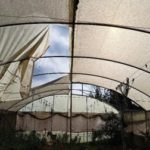
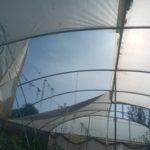
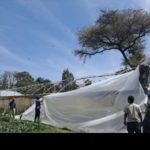
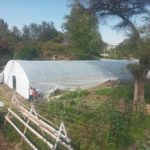
Passion garden
We have continued to maintain our activities at Passion garden: collecting seeds and producing vegetables for the canteen.

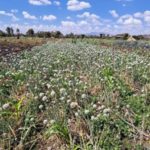

Weekly sales
The weekly basket deliveries have continued over the past months, and we would like to take this opportunity to thank all customers who have trusted us over the years.
BPC and GFF attended the Lebawi International Academy bazaar in April, and it was a positive experience. The bazaar welcomed around 1,000 visitors over two days, so it was an opportunity for us to promote organic products and explain the project and the GFF/BPC partnership. We made contact with new potential customers in Addis.


Networking visit for BPC management
In June, GFF funded the BPC management team for a 5-day educational visit to Hawassa Agriculture College and Shashamane Polytechnic College (TVET).
Established in 1976 as a junior college of agriculture under Addis Ababa University, Hawassa College is one of the oldest and most prestigious colleges in Ethiopia. Currently, the College is fully committed to ensuring the three pillars of the mandate entrusted to educational institutions, namely teaching-learning, research and community services. Over the years, it has transformed itself from offering degrees to fulfilling its mandate. The college is organised into three schools and one faculty and offers BSc, MSc and PhD level training. The objective of the visits was for the institutions to share knowledge and collaborate on management, technical and partnership matters.
Over the years, BPC has welcomed managers from other TVETs to show them the vegetable garden and talk to them about organic farming. These exchanges allow BPC and other TVETs to share their experiences and the study programme.
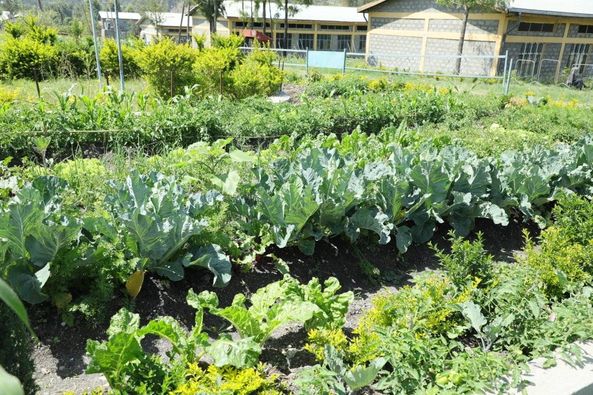
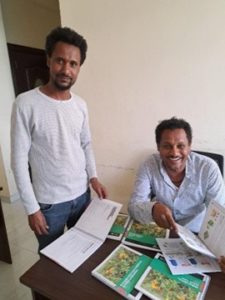
Distributing the GFF manual on organic farming to BPC teachers
Dereje, a teacher at BPC and Esrom, the GFF farm coordinator both contributed in proof-reading the content of the manual in amharic and afaan oromo. The manual is now available in the BPC library and the teachers will start using it as a resource in class, from level 2 onwards.
Closing ceremony
A closing ceremony was held in June, and it was an opportunity to share thoughts on the achievements of recent years and the support provided. It was also an opportunity for hub members to share their perspectives for the future.
Achieving overnight success is rare. Creating a viable and sustainable business is a long-term process. However, slowly but surely, with means and the right mindset, we believe that the youths we have accompanied over the past 2.5 years are on the right path to achieving their goals. While some will continue market gardening, others have chosen to return to school, and others will seek employment.
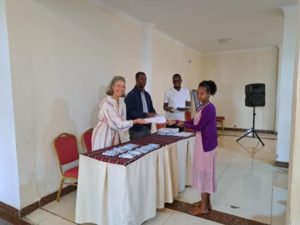
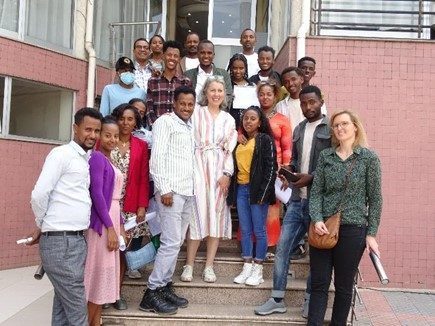
Thank You
We would like to warmly thank our donors, Board members, partners, staff, consultants, customers, community members, friends, everyone who has paid an interest in our activities and supported us. Thank you.
Photo credits: Green Flower Foundation
Make a donation
Green Flower Foundation
Rue de Rive 13
1204 Genève
CH11 0839 0034 5975 1000 7




